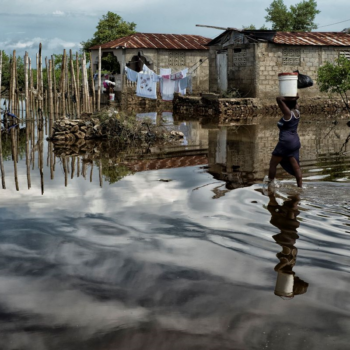A new era in international climate finance is emerging as developing countries adopt more strategic approaches to climate finance focused on a long term transition and transformation, states a new report by E3G. The report describes efforts underway in Chile, Colombia and Peru which has the potential to deliver many benefits, including accelerate the shift from the traditional supply-side bias of international climate finance to a demand-driven (“country led”) approach.
In the current economic climate, developing and developed countries face similar challenges in ensuring a rapid and steady transition to low emission and climate resilient policy choices for infrastructure and economic growth. Limited public resources at the domestic and international levels need to be used more effectively to attract private sector capital at the scale required for a global transition. Efforts to achieve the transition are however hampered by a number of complex factors, including: limited political and policy choices; lack of institutional capacity and readiness for new mechanisms; the fragmentation of the international climate finance ecosystem such as MRV and definitional issues; and the lack of predictability of climate finance flows.
A proliferation of climate finance initiatives have sprung forth in response to addressing these and other climate finance challenges by the UNFCCC and independently, from multilateral and bilateral development agencies – each with positive and noble intentions. However, these are still largely decoupled from each other and therefore are at risk of perpetuating the poor coherency and lack of integration of climate finance actions at the national level.
E3G’s report on Strategic National Approaches to Climate Finance argues that national pathways and strategies for climate finance present a viable response to these implementation challenges and aims to broaden financing considerations beyond short term horizons. These strategies would be primarily based on the country context, including its: national development and climate response priorities; the structure of the domestic finance system; the status of existing climate change actions; and the national development plans. The report also proposes diagnostic tools to assist in the development of such strategies, as well as certain climate finance principles that E3G believes may be relevant for developing countries to promote country leadership.
These strategic approaches may ultimately contribute to shaping an effective international finance ecosystem that supports the transition to low emission and climate resilient economies. The report reflects on how strategic national approaches to climate finance may shape the resources that need to be mobilised at an international level and improved effectiveness of international mechanisms, in particular the ongoing work of the Green Climate Fund, the Standing Committee on Finance, the OECD DAC with possible application to the work of the Expert Group on Sustainable Development Finance.
The work underway in Chile, Colombia and Peru is building strong foundations which can benefit other developing countries and deliver valuable lessons for the evolution of the international climate finance system and long term financing pathways to 2020.


